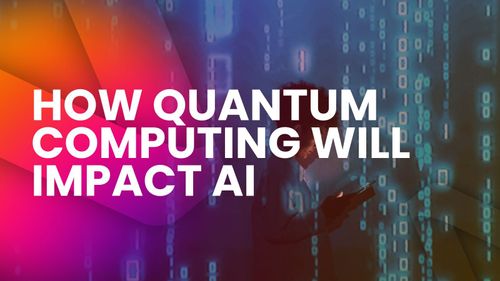Photo credit: Deepmind
In 2017, one in five businesses reported using AI, compared to one in two today, according to McKinsey’s annual Global Survey on AI. With 50% of companies using AI in some way, more innovative business solutions are emerging and transforming companies behind the scenes. Here are 3 industries using AI in new, unexpected ways.
Photo credit: Afresh
Food waste in grocery stores
One-third of the food we grow worldwide goes to waste. When grocery stores order too much produce, consumers don’t buy enough, or the produce goes bad too quickly, what’s left gets thrown away.
San Francisco-based Afresh has developed an AI-powered platform to change that. With the vision to “sustainably nourish the world with fresh food”, Afresh has been able to avoid 6.9 million pounds of food waste since its inception.
The startup’s platform analyzes store workflows, demand, inventory, perishability, and more and gives recommendations on improving each. These recommendations help stores improve fresh produce inventory and reduce waste going to landfill.
Cub, a grocery chain in Minnesota, US, used Afresh’s platform and saw sales increase by 2.5% and their shrink – a metric measuring how much product is shipped to the store versus sold to consumers – decrease by 18%.
Photo credit: Lixo
Managing waste more effectively
Humans throw a lot of things away. Over 2 billion pounds of trash are thrown away every year across the globe. Waste management isn’t the most efficient, nor innovative industry, yet so much of that garbage could be recycled and reused in a new way. Luckily, French startup Lixo has developed an AI solution that can analyze, trace, and map our waste to help make our waste management systems more efficient.
Lixo strives to bring high-tech solutions to the waste industry with the aim of closing the loop of the circular economy.
Their AI solutions can be used in trash or recycling collectors, sorting plants, and recycling plants to identify sorting errors, provide real-time analysis of the quality of incoming flows, identify certain materials for sorting, and much more.
Photo credit: FathomNet
Analyzing seafloors
The Earth is primarily covered by our oceans, but in reality, we know more about the surface on Mars than we do about our oceans. Artificial intelligence can offer a solution to researchers looking to speed up the process of analyzing the thousands of hours of video and photos that have been captured by the oceanographic community.
AI must be taught what to look for however and due to a lack of standardized imagery in the field, using artificial intelligence for this research has been difficult. Researchers from Open Ocean, a non-profit research organization, decided to create just that: a new baseline image training set, optimized to accelerate the development of modern, intelligent, automated analysis of underwater imagery.
In 2021, they released FathomNet, an open-source image database that can be used to enable artificial intelligence in the ocean to deal with large volumes of marine data. Over 84,000 images, like the one above, have annotated boxes that can “teach” machine learning algorithms what to search for.
From avoiding food waste, improving the circular economy, making discoveries on the sea floor, and much more, the uses of artificial intelligence are numerous. AI is entering different industries in new ways and helping to boost businesses across the globe. We can’t wait to see which ones this year at VivaTech in June!


